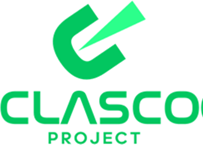
CT is taking part in the European CLASCO project (Climate Neutral and Digitalized Laser-Based Surface Functionalization of Parts with Complex Geometry), an R&D initiative led by the University of Dresden that brings together companies and research centers from several European countries. The project aims to develop sustainable, digitalized technologies for the manufacturing and laser functionalization of complex metallic components, fostering a more efficient and environmentally responsible industry.
As part of this project, CT has led the redesign and structural analysis of two aerospace demonstrators —the Lever and the Fitting (Bracket)— applying advanced topology optimization and Design for Additive Manufacturing (DfAM) techniques.
These components, produced in Scalmalloy (an aluminum-magnesium-scandium alloy with superior mechanical properties compared to conventional alloys), were manufactured using Laser Powder Bed Fusion.
CT’s work enabled a weight reduction of 53% and 38%, respectively, while maintaining all original functional and structural requirements. To achieve this, the CT team incorporated laser-beam accessibility criteria, essential for subsequent laser polishing and micro-texturing processes, improving corrosion resistance and surface quality.
The process also included geometric adaptation and full preparation for additive manufacturing, optimizing build orientation, support strategies, and scanning parameters to ensure geometric accuracy and minimize residual stresses.
The demonstrators were manufactured at CATEC’s facilities, achieving excellent results in integrity and dimensional accuracy, validating the optimized design approach developed by CT.
In the next phases of the project, the components will undergo laser micro-texturing treatments as well as mechanical and functional testing, moving toward a new generation of lighter, more durable, and more sustainable aerospace parts.
